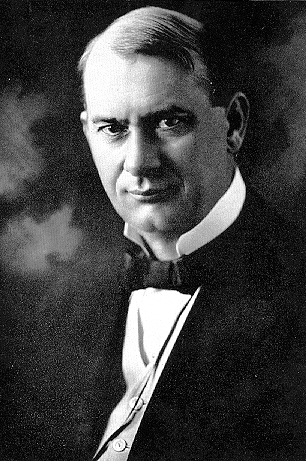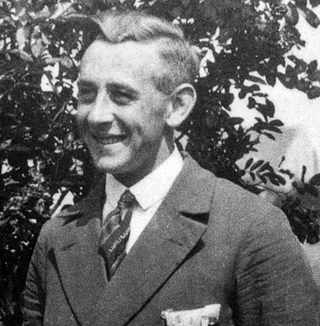
Jehovah's Witnesses is a nontrinitarian, millenarian, restorationist Christian denomination. As of 2023, the group reported approximately 8.6 million members involved in evangelism, with around 20.5 million attending the annual Memorial of Christ's death. Jehovah's Witnesses believe that the destruction of the present world system at Armageddon is imminent, and the establishment of God's kingdom over earth is the only solution to all of humanity's problems.
Jehovah's Witnesses's practices are based on the biblical interpretations of Charles Taze Russell (1852–1916), founder of the Bible Student movement, and of successive presidents of the Watch Tower Society, Joseph Franklin Rutherford and Nathan Homer Knorr. Since 1976, practices have also been based on decisions made at closed meetings of the group's Governing Body. The group disseminates instructions regarding activities and acceptable behavior through The Watchtower magazine and through other official publications, and at conventions and congregation meetings.

Jehovah's Witnesses have been criticized by adherents of mainstream Christianity, members of the medical community, former Jehovah's Witnesses, and commentators with regard to their beliefs and practices. The Jehovah's Witness movement's leaders have been accused of practicing doctrinal inconsistencies and making doctrinal reversals, making failed predictions, mistranslating the Bible, harshly treating former Jehovah's Witnesses, and leading the Jehovah's Witness movement in an autocratic and coercive manner. Jehovah's Witnesses have also been criticized because they reject blood transfusions, even in life-threatening medical situations, and for failing to report cases of sexual abuse to the authorities. Many of the claims are denied by Jehovah's Witnesses and some have also been disputed by courts and religious scholars.

Joseph Franklin Rutherford, also known as Judge Rutherford, was an American religious leader and the second president of the incorporated Watch Tower Bible and Tract Society of Pennsylvania. He played a primary role in the organization and doctrinal development of Jehovah's Witnesses, which emerged from the Bible Student movement established by Charles Taze Russell.
Jehovah's Witnesses are organized hierarchically, and are led by the Governing Body of Jehovah's Witnesses from the Watch Tower Society's headquarters in Warwick, New York. The Governing Body, along with other "helpers", are organized into six committees responsible for various administrative functions within the global Witness community, including publication, assembly programs and evangelizing activity.

The purple triangle was a concentration camp badge used by the Nazis to identify Jehovah's Witnesses in Nazi Germany. The purple triangle was introduced in July 1936 with other concentration camps such as those of Dachau and Buchenwald following in 1937 and 1938. In the winter of 1935–36, before the onset of the war, Jehovah’s Witnesses have been reported to make up 20–40% of the prisoners in concentration camps. Although Jehovah's Witnesses made up the vast majority of those wearing the purple triangle, a few members of other small pacifist religious groups were also included.

Raymond Victor Franz was a member of the Governing Body of Jehovah's Witnesses from October 20, 1971, until his removal on May 22, 1980, and served at the organization's world headquarters for fifteen years, from 1965 until 1980. Franz stated the request for his resignation and his subsequent disfellowshipping resulted from allegations of apostasy. Following his removal, Franz wrote two books that related his personal experiences with the Watch Tower Bible and Tract Society and his views on Jehovah's Witnesses teachings.
The beliefs and practices of Jehovah's Witnesses have engendered controversy throughout their history. Consequently, the denomination has been opposed by local governments, communities, and religious groups. Many Christian denominations consider the interpretations and doctrines of Jehovah's Witnesses heretical, and some professors of religion have classified the denomination as a cult.
The Governing Body of Jehovah's Witnesses is the ruling council of Jehovah's Witnesses, based in the denomination's Warwick, New York, headquarters. The body formulates doctrines, oversees the production of written material for publications and conventions, and administers the denomination's worldwide operations. Official publications refer to members of the Governing Body as followers of Christ rather than religious leaders.
Jehovah's Witnesses originated as a branch of the Bible Student movement, which developed in the United States in the 1870s among followers of Christian restorationist minister Charles Taze Russell. Bible Student missionaries were sent to England in 1881 and the first overseas branch was opened in London in 1900. The group took on the name International Bible Students Association and by 1914 it was also active in Canada, Germany, Australia and other countries.
Holocaust victims were people targeted by the government of Nazi Germany based on their ethnicity, religion, political beliefs, and/or sexual orientation. The institutionalized practice by the Nazis of singling out and persecuting people resulted in the Holocaust, which began with legalized social discrimination against specific groups, involuntary hospitalization, euthanasia, and forced sterilization of persons considered physically or mentally unfit for society. The vast majority of the Nazi regime's victims were Jews, Sinti-Roma peoples, and Slavs but victims also encompassed people identified as social outsiders in the Nazi worldview, such as homosexuals, and political enemies. Nazi persecution escalated during World War II and included: non-judicial incarceration, confiscation of property, forced labor, sexual slavery, death through overwork, human experimentation, undernourishment, and execution through a variety of methods. For specified groups like the Jews, genocide was the Nazis' primary goal.
Throughout the history of Jehovah's Witnesses, their beliefs, doctrines, policies and practices have engendered controversy and opposition from governments, communities, and religious groups. Many Christian denominations consider their doctrines to be heretical, and some religious leaders have labeled Jehovah's Witnesses a cult. Members of the denomination have also met with objection from governments for refusing to serve in the military, particularly in times of war. Many individuals consider their door-to-door preaching to be intrusive. These issues have led to persecution of Jehovah's Witnesses in various countries, including the United States.
Jehovah's Witnesses suffered religious persecution in Nazi Germany between 1933 and 1945 after refusing to perform military service, join Nazi organizations, or give allegiance to the Hitler regime. An estimated 10,000 Witnesses were sent to Nazi concentration camps. It is estimated that between 2,000 and 5,000 died in custody, including 250 who were executed. They were the first Christian denomination banned by the Nazi government and the most extensively and intensively persecuted.

The Declaration of Facts was a widely distributed public statement issued by Jehovah's Witnesses during the period of persecution of the group in Nazi Germany. The document asserted the denomination's political neutrality, appealed for the right to publicly preach, and claimed the Witnesses were the victims of a misinformation campaign by other churches. It was prepared by Watch Tower Society president Joseph F. Rutherford and released at a convention in Berlin on June 25, 1933. More than 2.1 million copies of the statement were distributed throughout Germany, with copies also mailed to senior government officials including German Chancellor Adolf Hitler. Its distribution prompted a new wave of persecution against German Witnesses.

Crisis of Conscience is a biographical book by Raymond Franz, a former member of the Governing Body of Jehovah's Witnesses, written in 1983, three years after his expulsion from the Jehovah's Witnesses denomination. The book is a major study and exposé of the internal workings of the Watch Tower Bible and Tract Society during the 1960s and 1970s. The book was updated and revised four times, with the final revisions made in 2004. It was translated into Croatian, Czech, Danish, Dutch, French, German, Greek, Italian, Japanese, Korean, Polish, Portuguese, Romanian, Russian, Spanish and Swedish.

Nathan Homer Knorr was the third president of the incorporated Watch Tower Bible and Tract Society, becoming so on January 13, 1942, replacing Joseph Franklin Rutherford, who had served in the position since 1917.
The beliefs of Jehovah's Witnesses are based on the Bible teachings of Charles Taze Russell—founder of the Bible Student movement—and successive presidents of the Watch Tower Society, Joseph Franklin Rutherford, and Nathan Homer Knorr. Since 1976, all doctrinal decisions have been made by the Governing Body of Jehovah's Witnesses, a group of elders at the denomination's headquarters. These teachings are disseminated through The Watchtower magazine and other publications of Jehovah's Witnesses, and at conventions and congregation meetings.
This is a bibliography of works on the Jehovah's Witnesses.
Richard Rudolph was the last surviving victim of "double persecution" in that he was incarcerated for nearly nine years in Nazi prisons and concentration camps and then was imprisoned for a further ten years in the communist German Democratic Republic. He was imprisoned in Sachsenhausen, Neuengamme, and Ravensbrück concentration camps and the Salzgitter-Watenstedt Leinde subcamp of Neuengamme in addition to various police, penitentiary and juvenile prisons.

August Dickmann was a Jehovah's Witness and Conscientious objector from Germany, and the first person to be executed for rejecting military service during World War II. He was one of many German Jehovah's Witnesses executed because of his religious beliefs during the Nazi regime. Commanding the firing squad that executed Dickmann was SS officer Rudolf Höss, who was later to become the longest-serving commandant of Auschwitz concentration and extermination camp.







